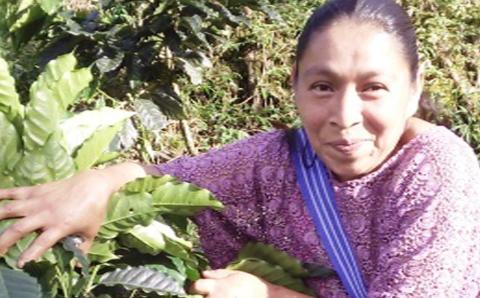After focusing on the Paris Summit on climate change (COP21) and sending a delegation there, the Christian Reformed Church’s Office of Social Justice is continuing its creation care work. The Climate Witness Project (CWP) is part of that broader effort.
Corenna Roozeboom of Hope CRC in Oak Forest Ill., is a member of her church’s creation care committee and is one of 210 climate partners in 35 congregations in the CWP. “We received daily newsletters [from COP21], participated in online video chat, and visited legislators in Illinois; [we] told them who we are and why we support legislation actively fighting climate change,” she said.
Peter Vander Meulen, director of OSJ, reported that the total budget for the delegation to Paris, production of video and education materials, website and communications, and stipends and salaries came to approximately $54,000. About $23,000 was raised outside denominational ministry shares.
“The four-person delegation to COP21 was central to our entire CWP phase 1 organizing project. It was COP21 and all of the other events around COP21 that we leveraged to draw the attention of CRC members to this issue,” he said. “The charge I sometimes hear of an OSJ team ‘junketing’ to Paris at denominational expense is particularly galling and unfair because this group worked so hard and lived so frugally.”
Since the Paris meeting, the CWP focus has been on congregations. Phase 2, which runs until June 30, 2017, includes doubling the number of churches participating in the CWP to 70. Climate partners in each congregation will be enabled to take steps to make their buildings more energy efficient, continue to educate their congregations on the damage caused by climate change using materials prepared by the CWP leadership team, and discuss climate change with their legislators. Roozeboom’s church recently received an Energy Star rating from the U.S.’s Environmental Protection Agency for its energy efficiency.
Organizers of the CWP point to a mandate by Synod 2012 (the annual leadership meeting of the CRC) as their marching orders. That synod called on the CRC (churches, members, and denominational bodies) to reduce individual and collective carbon emissions. It called on members and churches to advocate for public strategies that reduce carbon emissions. And it called on everyone to advocate for governments to take action to assist populations that are bearing the brunt of the negative effects of climate change (Acts of Synod 2012, pp. 804-806).
The Climate Witness Program is not without its detractors. One of them is Doug Vande Griend, a member of Sunnyslope CRC in Salem, Ore. He agrees that a synod can declare that Christians should be stewards of creation. But, he said, neither synod nor its agencies, including OSJ, “should decide for CRC members what conclusions they should come to as to creation care issues.”
He said CRC members will come to different conclusions about the Paris Summit and questions related to creation care, and that’s okay. “What is not okay is that we have a CRC agency that uses both the dollars (ministry shares) and the name of the CRC to pick which CRC members are correct about the Paris Summit.”
Vande Griend said when the denominational level of the CRC starts making too many non-ecclesiastical decisions on behalf of its members, some will agree with those decisions and others will say, “Who are you to speak for me, especially when you’re wrong?” The OSJ Climate Witness Program, he said, substantially represents the denomination doing just that, and it’s divisive.
Vandermeulen said that OSJ promotes citizen advocacy, but, he noted, climate change hurts the people who are poor with whom World Renew and World Missions work. “Our mission to [them] lacks integrity if we cannot institutionally raise their voices and needs to those in power.”
Roozeboom said her congregation will continue to be engaged with the project. “Our creation care committee feels that it’s really important that members of the CRC are thinking about climate change and our responsibility to those most vulnerable to changing climate. For us it is a moral, faith-based issue.”
About the Author
Gayla Postma retired as news editor for The Banner in 2020.









